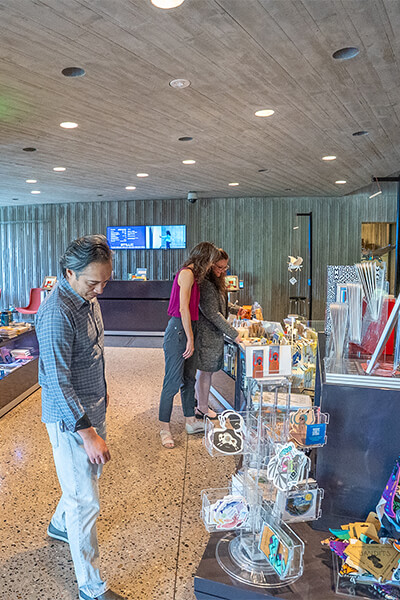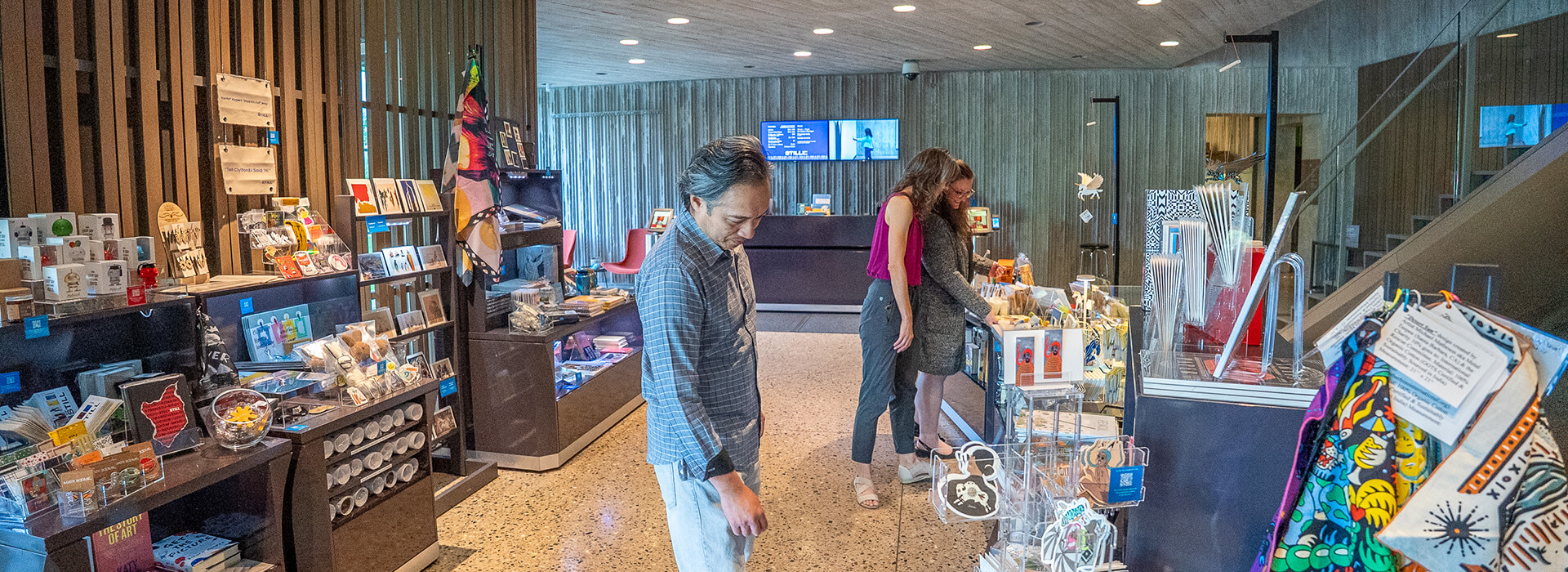The Institute unlocks the potential of Still’s extraordinary gift, enabling artists and thought leaders the freedom to innovate and transform our present and future. The Institute Residential Fellowship Program at the Clyfford Still Museum focuses on three pillars of study: art; education; and social enterprise. The Social Enterprise Fellows will thoroughly investigate financial frameworks suitable for nonprofits and social enterprises, such as our own, that support the freedom of innovation.
2026 Institute Fellowship applications are open from December 2, 2025 through February 2, 2026.
Learn more and apply
About the Social Enterprise Fellowship
Past Social Enterprise Fellows
Learn more about the past Social Enterprise Fellows and their projects.
- Marie Edland, 2025
- Riley Jones, IV, 2025
- Emily Grace King, 2024
Social Enterprise Advisory Board Members
- Aaron Duke, Product Leader & Advisor
- Claude Grunitzky, CEO and Managing Partner, Equity Alliance
- Dan Wang, Lambert Family Professor of Social Enterprise and Sociology at Columbia Business School and Co-Director of the Tamer Institute for Social Enterprise and Climate Change
What is Social Enterprise?
Social enterprise is the arena of business that addresses social needs through practices that generate sustainable revenues. Social enterprises fund and scale their mission-driven work by employing business strategies and harnessing market demand. In doing so, social enterprises blend financial resilience with a commitment to creating systemic, meaningful change in communities and ecosystems. Charities are becoming increasingly innovative in the ways they leverage business principles to generate revenues through the pursuit of their mission-driven activities.
What Does Social Enterprise Mean in a Museum Context?
In the United States, most museums are public charity and not-for-profit organizations, including the Clyfford Still Museum. Revenue-generating activities at museums leverage business tools and market demand, providing funds that are reinvested back into the museum. There is growing interest in new entrepreneurial revenue opportunities. Museums implementing these offerings can unlock new revenue growth during tremendous pressure on operating budgets.
The Clyfford Still Museum’s interest in social enterprise is to spur the continued exploration and development of critical new pathways for revenue generation that deliver both a social and financial impact in the creative economy. As the cost of delivering the arts continues to rise, the existing revenue mechanisms that museums rely on have limited ability to scale at the level needed. Diversifying revenue sources provide museums with a foundation of stability and independence, helping to ensure their resilience in the future.
How does Social Enterprise connect with Clyfford Still’s legacy?
Clyfford Still was keenly interested in preserving autonomy and independence. His gift endowed CSM with financial strength, enabling us to pursue new, innovative projects with unprecedented freedom. Our commitment to social enterprise leverages that freedom to find new ways of growing our financial resources to secure our autonomy in perpetuity. In so doing, we model opportunities for our Museum and our peers in art and nonprofits to forge new financially sustainable pathways for artists and entrepreneurs working in the creative economy. We welcome entrepreneurial ideas that focus on a product or service that may exist as a standalone business, initiatives that can be pursued by an existing museum or arts organization, or research-based inquiry into the related areas of social enterprise innovation in the creative economy.

